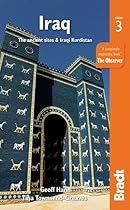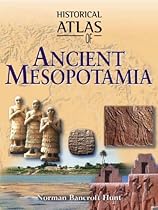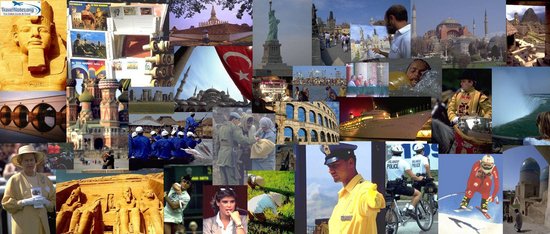Travel Notes: Middle East - Iraq Travel Notes.
Short URL: https://tnot.es/IQ
Iraq Travel and Tourism on Travel Notes
Visit Historical Mesopotamia - Explore Iraq's Ancient Wonders
Uncover the rich history and archaeological treasures of Mesopotamia as you visit Iraq's ancient wonders, including the ruins of Babylon, Ur, and Nineveh. Share on Facebook
About Iraq
While travel to Iraq may present challenges and risks, it is possible to have a safe and enjoyable trip with proper planning and precautions.
The historical name for the region is Mesopotamia, the land between two rivers (Tigris and Euphrates), and thought to be the cradle of civilisation.
Countries neighbouring Iraq: Kuwait, Saudi Arabia, Jordan, Syria, Turkey and Iran.
 Add a Business -
Add a Location -
Add a Lodging - Add Travel Content
- Add URL
- Travel Services.
Add a Business -
Add a Location -
Add a Lodging - Add Travel Content
- Add URL
- Travel Services.
Mapping Iraq
Map of Iraq
Iraq shares borders with Turkey to the north, Iran to the east, Jordan to the west, Saudi Arabia to the south, Kuwait to the south-east, and Syria to the north-west.
The capital city of Iraq is Baghdad.
Brief Iraqi History
It is believed that land was cultivated here back in 4,000 BC, long before the glories of Babylonia, and Nebuchadnezzar II's famous Hanging Gardens.
Evidence of the historic Christian presence in Iraq can be seen through the Chaldani Church, in Mosul, northern Iraq. Some Christian minorities still exist in predominantly Muslim Iraq, such as the Chaldean and Syrian Catholics.
Modern Iraq's history begins with the last phase of Turkish rule:
Sultan Ali Reza Pasha deposed the last Mameluke ruler, Daud Pasha, in 1831, and the province of Iraq became subject to Turkish administration.
Britain and Germany rivalled each other for the commercial development of Mesopotamia during the latter part of the 19th century.
The British were interested in Iraq as a direct overland route to India, and established a steamship company for the navigation of the Tigris, to the port of Al Basrah, in 1861.
Germany, meanwhile, planned to construct a railway in the Middle East that would extend from Berlin to Baghdad.
During the First World War, British forces invaded Southern Mesopotamia to counter Turkey's allegiance with Germany, and pushed up to occupy Baghdad by March 1917.
All of Mesopotamia then became a British mandate in October 1918, after successful campaigns directed by Lawrence of Arabia.
When Iraq entered the League of Nations as a free and independent state, in 1932, the British mandate was formally terminated.
Following the termination of the British protectorate over the emirate of Kuwait, on June 25, 1960, Iraq claimed the area had been part of the Iraqi state at the time of its formation.
British forces entered Kuwait in July 1960, at the invitation of the ruler, and the UN Security Council declined the Iraqi request to order their withdrawal.
And of course history repeated itself on August 2nd 1990, when Saddam's Republican Army invaded Kuwait, with an allied Desert Storm to follow.
George Bush Junior followed in his father's footsteps and, together with the British, sent in the troops to remove Saddam Hussein and the Ba'ath Party from power in 2003.
Iraq Overview
Iraq, officially known as the Republic of Iraq, is a country located in the Middle East.
Iraq has a rich history that dates back thousands of years and has been home to various civilisations, including the ancient Mesopotamian civilisations of Sumer, Babylon, and Assyria.
Cultural Heritage
Iraq is home to many historical and archaeological sites of great significance, including the ancient cities of Babylon, Ur, and Nineveh.
These sites contain remnants of ancient civilisations and are recognized as UNESCO World Heritage Sites.
Economy
With significant oil reserves, Iraq's economy is largely dependent on oil exports.
However, the country faces challenges such as corruption, inadequate infrastructure, and political instability, which have hindered economic development and diversification.
Geography
Iraq is predominantly a desert country, with the Tigris and Euphrates rivers flowing through it.
These rivers have played a significant role in the country's history and have supported agriculture and civilisation in the region.
Population
Iraq has a diverse population, with Arabs being the majority ethnic group, followed by Kurds, Turkmen, Assyrians, and other smaller ethnic communities.
The majority of Iraqis are Muslims, with the majority being Shia Muslims, while Sunni Muslims form a significant minority.
Recent History
Iraq has faced significant challenges in recent history.
The country was ruled by Saddam Hussein, who came to power in 1979.
During his regime, Iraq fought an eight-year war with Iran in the 1980s and invaded Kuwait in 1990, leading to the Gulf War and subsequent sanctions imposed on Iraq by the United Nations.
In 2003, a U.S.-led coalition invaded Iraq, resulting in the overthrow of Saddam Hussein's regime and the subsequent instability and sectarian violence.
Following the fall of Saddam Hussein, Iraq underwent a period of transition and faced numerous challenges, including sectarian violence, insurgency, and political instability.
The country held its first democratic elections in 2005 and has since made progress in establishing a democratic system, although it continues to face security and political challenges.
Various Ongoing Challenges
Iraq continues to face various challenges, including security concerns, political instability, economic issues, and the ongoing threat of terrorism.
The country has been affected by the rise of extremist groups such as ISIS (Islamic State of Iraq and Syria), which had occupied significant parts of Iraq but has since been largely defeated.
It's important to note that the situation in Iraq is complex and dynamic, and the information provided here offers a general overview.
For more specific and up-to-date details, it's recommended to refer to reliable sources or news outlets.
Visiting Iraq
The best time to visit Iraq is in Spring and Winter. Travelling to Iraq in Summer is not recommended as temperatures soar to 48ºc.
If you are planning to visit Iraq, it's important to stay updated on the current situation and any travel advisories issued by your government.
Ensure you have the necessary travel documents and consider contacting the Iraqi embassy or consulate in your country for detailed information regarding visas and entry requirements.
When visiting Iraq, it's essential to respect local customs, traditions, and religious practices.
It's also advisable to stay informed about the current security situation and follow any guidance or restrictions from local authorities or your embassy.
Iraq by Air
Flights to Baghdad - BGW
Airlines and Airports - Cheap Flight Tickets.
Iraqi Fruit
Make sure to taste the different varieties of Iraqi dates as they are exceptionally delicious. Also citrus fruits like oranges, they taste exquisite.
Language
Most Iraqi people speak a little English and are exceptionally helpful, especially to foreigners.
Sightseeing
Iraq is full of ancient sites from the dawn of civilisation.
Special Note:
All foreigners are required to be tested for HIV at a state laboratory
within 10 days of entry into Iraq. All stays beyond 10 days require an
HIV test. Diplomats are excluded from these regulations.
Tourist Attractions for Visitors to Iraq
Babylon
Located south of Baghdad, Babylon was once a major city of ancient Mesopotamia.
Visitors can explore the ruins of the ancient city, including the Ishtar Gate, the Hanging Gardens, and the ruins of the famous Tower of Babel.
Baghdad
The capital city of Iraq is home to historical sites, museums, and cultural landmarks.
Must-visit places include the Iraqi National Museum, the Abbasid Palace, and the famous Mutanabbi Street.
Basra
Situated in the south of Iraq, Basra is a major port city with a rich cultural heritage.
It offers historical sites, such as the Basra Citadel and the Grand Mosque of Basra, as well as the Shatt al-Arab waterway.
Erbil
The capital of the Kurdistan Region of Iraq, Erbil, is known for its ancient citadel, a UNESCO World Heritage Site.
The city also has a vibrant bazaar, offering traditional crafts and local cuisine.
Najaf
Najaf is one of the holiest sites for Shia Muslims.
It is home to the Imam Ali Shrine, which attracts millions of pilgrims every year.
Iraqi Politics
The Iraqi National Congress was the main opposition group during Saddam Hussein's rule in Iraq; after America, Iran and Kuwait.
Iraqi News
Founded in 2000, Iraqi News is an English-language online newspaper that covers a range of Iraqi topics including business, politics, security, social issues, culture, entertainment and sport; with no link to any political party or interest group.
The Iraq Foundation
The Iraq Foundation is a non-profit, non-governmental organisation working for democracy and human rights in Iraq.
Iraq Maps and Travel Guides
Iraq Travel - Iraq Maps - Mesopotamia.
Weather in the Middle East:
Local weather forecasts for destinations around the Middle East.
|
|
More From Travel Notes
Travel Notes Online Guide to Travel
Africa - Asia - Caribbean - Europe - Middle East - North America - Oceania - South America.
The Travel Notes Online Guide to Travel helps visitors plan their trip with country and city travel guides, local tourist information, reviewed web sites, and inspiring travel content.
Travel and Tourism Guides on Travel Notes
 If you find Travel Notes useful, please take a moment to
like us on Facebook and share with your friends on social media.
If you find Travel Notes useful, please take a moment to
like us on Facebook and share with your friends on social media.
Share on Facebook
Travel Resources
.
Travel & Tourism With Industry Professionals.














